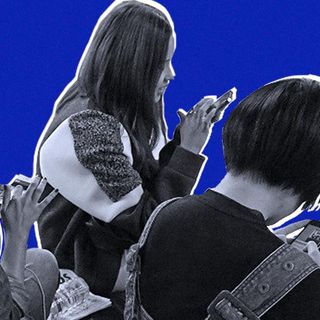Tinder just announced a new feature, exclusive to users of the dating app in India, which gives women the option to further scrutinize matches. The app usually connects two users who have swiped ‘yes’ on each other’s profiles, and either party can begin a conversation by messaging the other. With the ‘My Move’ feature, women can now decide if they want to be the only one allowed to initiate conversation, taking the choice away from men, even if they have both ‘matched’ on the app.
The motive behind this, explains Taru Kapoor, general manager for Tinder’s parent company, Match Group in India, is to attract more women to the dating app, by making them feel safer. India will provide the testing ground, after which the company plans to roll out the feature worldwide.
“[…] My Move provides women with the autonomy to choose how they engage with their matches and empowers them to control their experiences,” Kapoor told Reuters. “We believe that true choice is letting women be who they are and empowering their choice to shape their own identity and experience.”
Maybe it’s the tall order — of promising women empowerment and agency over their identities and experiences — simply through a new feature on a dating app. Maybe it’s that Kapoor doesn’t quite seem to understand that telling women they’re empowered is not the same as telling them they’re safe. Or that she throws around other buzzwords, claiming the app is all about “mutual respect, consent, and choice.” Whatever it is, something about this feels off. Like someone on their marketing team decided they needed to jump on the feminist train.
Tinder already gives women the option of choice, in only allowing a person to start up a conversation if their profile has been okay-ed. “Even after carefully picking someone, if they turn out to be nothing like you imagined, there is always an unmatch option,” a Bengaluru-based resident pointed out to Reuters. More than anything, this ‘women-first’ move seems like a gimmick, that’s not really going to change how users interact with the app.
What Tinder doesn’t seem to understand is this: women don’t really care about who starts the chat first. It’s about how dangerous or offensive people can become once a conversation has started.
Adding a feature that other apps, like Bumble (ironically founded by Whitney Wolfe Herd after she sued Tinder for sexual harassment and discrimination) already have is not going to make women safer. It would be more effective to begin gathering and analyzing data towards understanding the potential dangers the online dating industry seems to be creating for its users. A study in 2016 showed that, out of 666 students in Hong Kong, dating app users were twice as likely to suffer sexual harassment and abuse, which included being coerced into unprotected sex, and rape. The Pew Research Center also found 41% of 18- to 29-year-olds online have said that they unfriended or blocked people who were “flirting with them in a way that made them feel uncomfortable.”
There’s an enormous dearth of data on the ways in which our online dating culture can make people vulnerable to violence and harassment, but no in-depth studies have been conducted within the industry. Many of these companies don’t even have senior management responsible specifically for user safety, nor are they transparent about any incidents reported.
Paying lip service to women while bolstering your own brand is not just unacceptable, it’s insulting. Step-up your game, Tinder.




